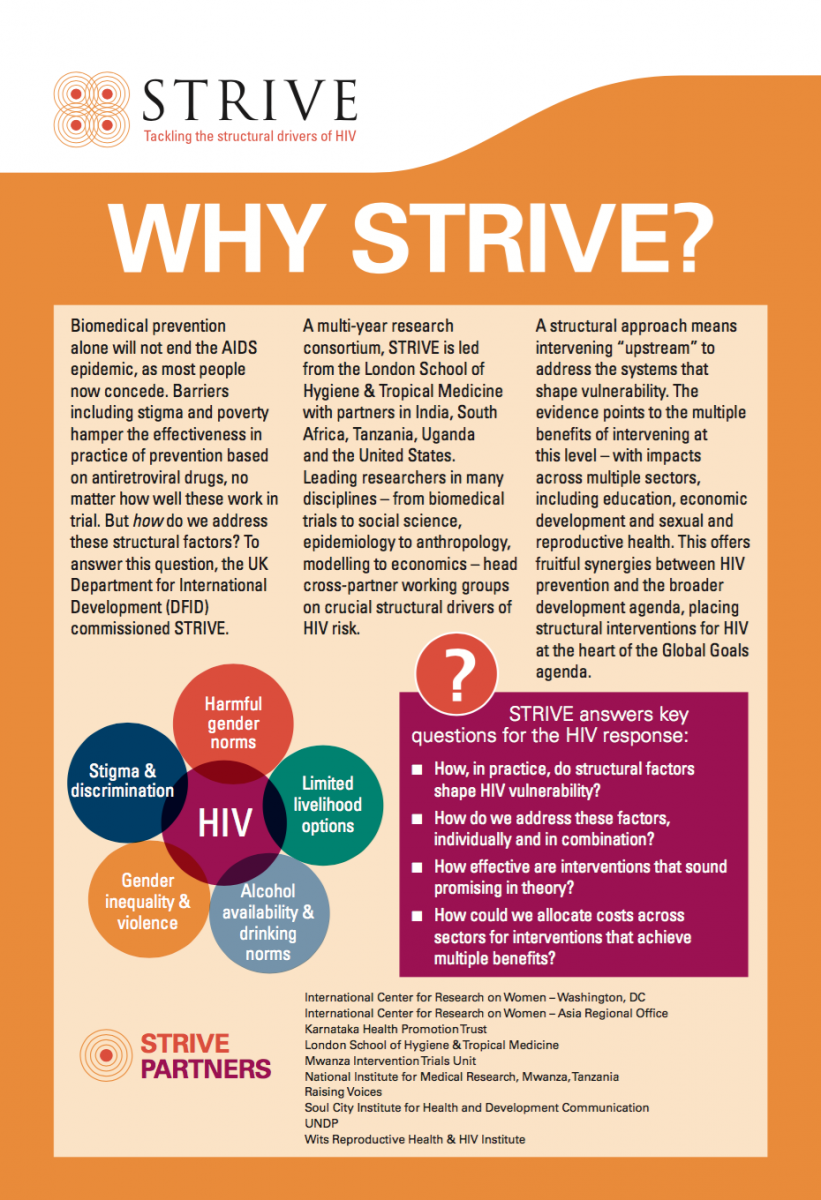This article describes how STRIVE researchers and partners used a community-based participatory research to better understand violence and lack of condom use among female sex workers and their male intimate partners.
Also mothers, daughters and lovers: Social relations and sex work in India – Mirna Guha
In this webinar, Mirna Guha shares her PhD research on sex work, social relations and violence in Eastern India.
Maisha -- Life
Maisha means "life" in Swahili. Everyone wants to live happily with their families - violence between partners is bad for relationships and health. Specifically, intimate partner violence (IPV) is known to increase the risk of HIV infection.
This video outlines a programme in Mwanza, Tanzania to reduce IPV and thus reduce the risk of multiple health harms including HIV. Key steps in the project:
1. Researchers find out more about the problem
Reframing men and boys in policy for gender equality - Jerker Edström
This session outlines evidence-based principles as guidance for reframing gender policy and understanding the transformation of gender norms in dynamic structural contexts. It draws on two years of work reviewing evidence, compiling case studies across nine themes and synthesising principles for guidance together with researchers, practitioners and policy makers.
Why STRIVE?
What does the STRIVE research consortium do, and why? What are the over-arching messages from STRIVE's research and analysis? And how can you access STRIVE activities, materials and learning?
Download the brochure to find the answers.

Like a Banyan Tree
Two years after filming the start of the Samata programme in north Karnataka, this 15-minute documentary investigates what has changed for the adolescent girls involved. And what has changed for their families, boy students, schools and communities?
Samata seeks to keep girls from marginalised communities in school as a proven measure to reduce their risk of HIV and other health problems. As one teacher remarks, ideas about samata (or equality) have taken root, like a banyan tree.
Samata – Equality
This 7-minute documentary summarises progress on Samata project two years after a first round of filming. What has changed in the girls’ lives? And how did the programme support this change? What challenges remain?
ASSHH UK Conference: 'Critical conversations about HIV'
On 20 June 2016 STRIVE co-hosted a one-day meeting with ASSHH UK, a network that aims to bring together UK-based researchers working on HIV in the humanities and social sciences. The meeting was organised by researchers from the London School of Hygiene & Tropical Medicine, University of Glasgow, University of Northampton, Goldsmiths and the School of Oriental and African Studies, with a small grant from the Wellcome Trust as well.
Violence, HIV and female sex workers in Karnataka State, India – Mohan H.L. & Dr Tara Beattie
This webinar describes the violence reduction interventions within the Avahan intervention, discusses the findings and outlines costing analyses.



